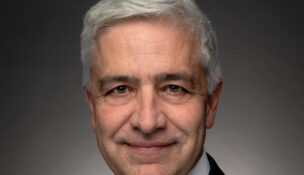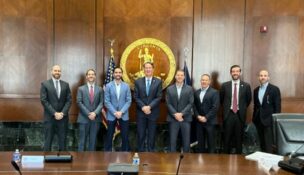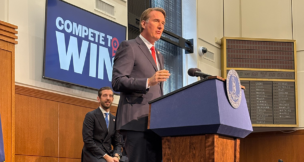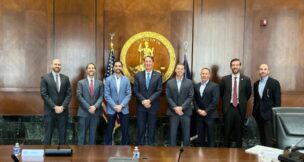HDL investigation sparked by whistleblower
A federal investigation into the reimbursement practices of Health Diagnostic Laboratory Inc. (HDL) in Richmond that led to a multimillion-dollar fine apparently started with a whistleblower lawsuit filed by a South Carolina doctor who said he had concerns about the fees HDL and other blood testing labs were paying physicians who ordered the tests.
That was one of the revelations that came to light Thursday when the U.S. Department of Justice (DOJ) and a law firm representing the doctor, Washington, D.C.-based Phillips & Cohen LLP, released statements about the federal investigation.
The South Carolina physician, Dr. Michael Mayes, was one of several whistleblowers in a case that led to the federal investigation.
HDL confirmed last week that it had reached a settlement with the Department of Justice, but a press release posted to DOJ’s website Thursday and a statement from Phillips & Cohen provided new details.
The DOJ said HDL will pay $47 million and Singulex Inc., another cardiovascular testing disease laboratory based in Alameda, Calif., will pay $1.5 million. The fines resolve allegations that the labs violated the federal False Claims Act by paying remuneration to physicians in exchange for patient referrals and billing federal health care programs for medically unnecessary testing.
Peter Chatfield, a partner with Phillips & Cohen, said in an interview with Virginia Business that HDL also will pay more than $3 million in interest to the government during the next three years. According to Chatfield, the settlement amounts were limited to HDL’s and Singulex’s ability to pay. The agreements also include contingency provisions, Chatfield added, that require each company to pay more if its ability to pay improves in the next five years.
The DOJ’s release said that the U.S. would sue two other companies and three individuals, including HDL’s former CEO and co-founder Tonya Mallory, for similar violations under the False Claims Act.
“The government also intervened in the lawsuits as to similar allegations against another blood testing laboratory, Berkeley HeartLab Inc. (in Burlingame, Calif.); a marketing company, BlueWave Healthcare Consultants Inc. (based in Hanceville, Ala.) and its owners, Floyd Calhoun Dent and J. Bradley Johnson; and former CEO Latonya Mallory of HDL,” the release said.
“Health-care providers that attempt to profit by providing illegal inducements will be held accountable,” said Benjamin C. Mizer, acting assistant attorney general for the Justice Department’s Civil Division. “We will continue to advocate for the appropriate use of Medicare funds. ..”
According to the DOJ, the lawsuits allege that HDL, Singulex and Berkeley induced physicians to refer patients to them for blood tests by paying them processing and handling fees of between $10 and $17 per referral and by routinely waiving patient co-pays and deductibles. “In addition, HDL and Singulex allegedly conspired with BlueWave to offer these inducements on behalf of HDL and Singulex. As a result, physicians allegedly referred patients to HDL, Singulex and Berkeley for medically unnecessary tests, which were then billed to federal health care programs, including Medicare,” the release said.
An HDL spokesman could not be reached for comment, but the company did release a statement in response to DOJ's announcement Thursday. “HDL Inc. is pleased to announce that it has reached a settlement with the U.S. Department of Justice (DOJ) in conjunction with the government’s industry-wide investigation of the diagnostic laboratory industry. The agreement … resolves all allegations made against our company.”
The company went on to comment about the process and handling fees. “In its news release announcing the settlement, DOJ made reference to allegations that processing and handling fees were improper and that some testing was unnecessary. The payment of processing and handling fees was a longstanding practice in the diagnostic laboratory industry. In June 2014, when the government for the first time issued new guidance stating that the payments presented risk, HDL, Inc. immediately stopped paying processing and handling fees to referring providers,” the statement said.
“We emphasize that reaching this agreement does not mean that HDL, Inc. engaged in any wrongdoing,” the statement said. “The settlement is not an indication that any conduct was improper or unlawful. As DOJ noted in its news release announcing the settlement, ‘The claims settled by these agreements and asserted against these companies and individuals are allegations only, and there has been no determination of liability.’ “
The DOJ release noted that the federal Anti-Kickback Statute prohibits offering, paying, soliciting or receiving remuneration to induce referrals of items or services covered by federally funded programs. The statute is intended to ensure that a physician’s medical judgment is not compromised by improper financial incentives.
Chatfield said his client, Mayes, an internist, was the first to file a whistleblower claim in July 2011 in the U.S. District Court for the District of South Carolina against BlueWave, a sales and marketing firm that worked with HDL. In 2012, Mayes amended his claim to include HDL and Singulex after learning that reimbursements for blood testing would be paid directly by the firms. Two nurses who worked for doctor’s offices in South Carolina and the former owner of a testing laboratory in California also filed whistleblower claims against HDL and other companies, Chatfield said.
According to the DOJ, the suits were filed by Mayes, Scarlett Lutz, Kayla Webster and Chris Reidel under whistleblower provisions of the False Claims Act. Under the act, private citizens can bring suit on behalf of the government for false claims and share in any recovery. The whistleblowers’ share of the settlements has yet to be determined. The act also permits the U.S. to intervene in and take over a whistleblower suit, as it has done in part in the three actions. The United States advised the court that it would be filing its own complaint against the corporate and individual defendants against whom it has intervened within 120 days.
HDL's statement included what appeared to be an indirect reference to the whistleblowers. “We have taken the step of resolving this matter in order to put these allegations, which stemmed from historical practices once common in the industry, behind us. These allegations were made against a number of companies operating in the clinical laboratory industry by individuals who stand to personally profit by making these allegations. Reaching this agreement enables HDL Inc. to avoid the distraction of what could have been years of uncertainty associated with protracted and expensive litigation. The settlement allows us to move ahead with our important work of helping improve the health of millions of Americans.”
As part of the settlements, HDL and Singulex have agreed to enter into separate corporate integrity agreements with the Department of Health and Human Services’ Office of Inspector General (HHS-OIG). Those agreements provide for procedures and reviews to be put in place to avoid and detect conduct similar to that which gave rise to the settlements.
“Today’s announcement that DOJ has settled in part and intervened in part in these whistleblower actions reflects the commitment by DOJ, our agency and our other law enforcement partners to ferret out alleged improper Medicare billings by health care-companies that are looking to increase their profits at the expense of taxpayers,” said Special Agent in Charge Derrick L. Jackson of the HHS-OIG Atlanta Regional Office.
P
















